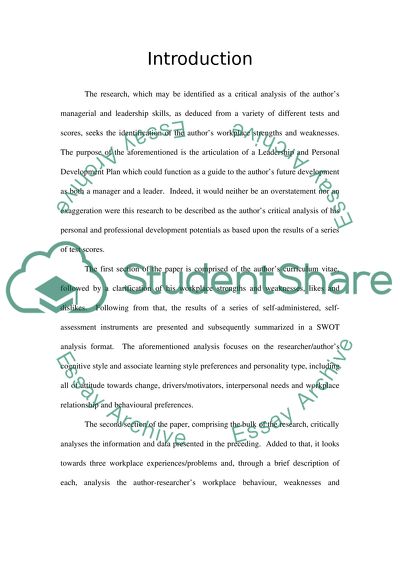Cite this document
(“Leadership and Personal Development Statement Example | Topics and Well Written Essays - 3500 words”, n.d.)
Leadership and Personal Development Statement Example | Topics and Well Written Essays - 3500 words. Retrieved from https://studentshare.org/sociology/1500108-leadership-and-personal-development
Leadership and Personal Development Statement Example | Topics and Well Written Essays - 3500 words. Retrieved from https://studentshare.org/sociology/1500108-leadership-and-personal-development
(Leadership and Personal Development Statement Example | Topics and Well Written Essays - 3500 Words)
Leadership and Personal Development Statement Example | Topics and Well Written Essays - 3500 Words. https://studentshare.org/sociology/1500108-leadership-and-personal-development.
Leadership and Personal Development Statement Example | Topics and Well Written Essays - 3500 Words. https://studentshare.org/sociology/1500108-leadership-and-personal-development.
“Leadership and Personal Development Statement Example | Topics and Well Written Essays - 3500 Words”, n.d. https://studentshare.org/sociology/1500108-leadership-and-personal-development.


